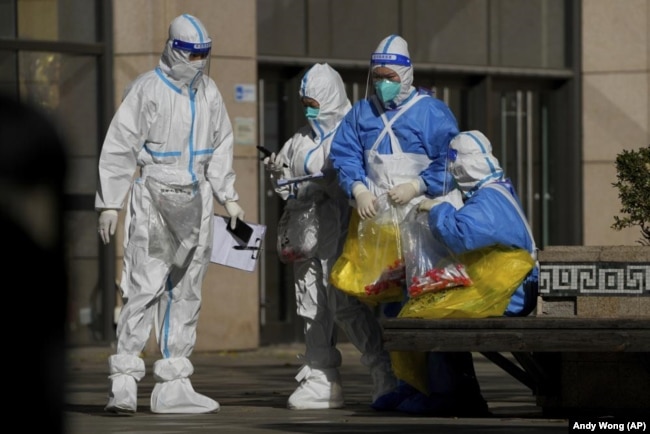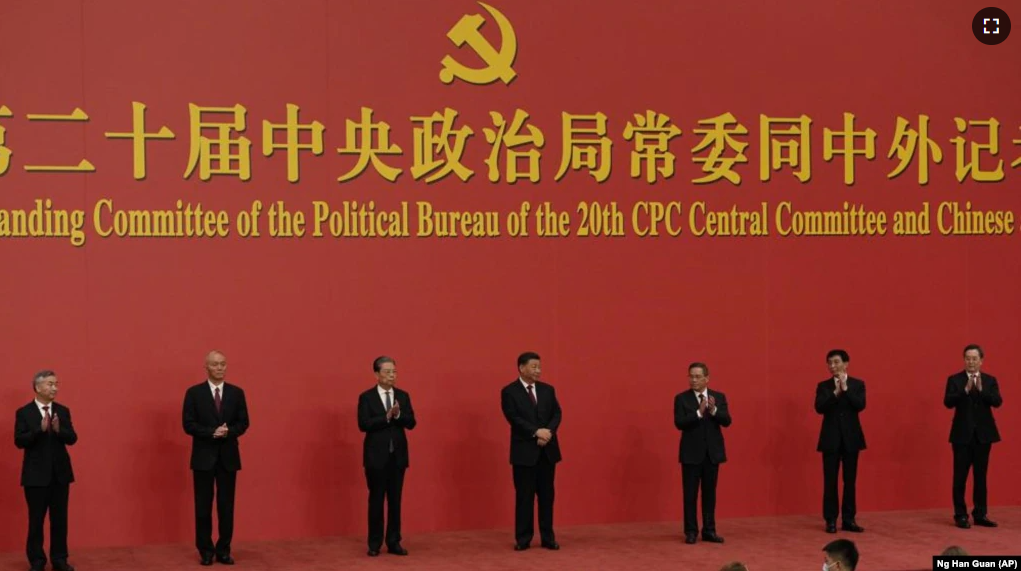Chinese President Xi Jinping was awarded a third five-year term as leader of the Communist Party on Sunday.
The decision breaks with the tradition of Chinese presidents leading the country for no more than 10 years. The party named a seven-member ruling Standing Committee of Xi and his allies, which gives him freedom to carry out his plans.
Xi has tightened control within China and is also trying to use China’s economic strength to increase its influence overseas. Some experts say his leadership could bring more concerns worldwide about security, human rights, trade, economic and environmental issues.
Xi has said he wants his country to be renewed by strengthening the Communist Party’s role as the economic, social and cultural leader.
Kevin Rudd is president of the Asia Society and a former Australian prime minister. He said this means it is unlikely that China will peacefully make its economy and political policies freer.
Xi’s government has jailed people who speak critically of the government, increased control of the internet and crushed a pro-democracy movement in Hong Kong.
Rudd said Chinese society “has become much more authoritarian and at times totalitarian.”
Economic goals
By 2035, the Communist Party wants China’s economic output per person to match a “medium-level developed country,” Xi said in a report to the party congress. That suggests doubling output from 2020 levels, according to Larry Hu and Yuxiao Zhang of Macquarie, an Australian financial services group.
However, the economy faces difficulties. These challenges include disagreements with the U.S., less access by China to Western technology, an aging population and a slowdown in its real estate industry.
Xi promised to build China’s strength in science and technology. China has made efforts to create sources of renewable energy, electric vehicles, computer and other technologies. However, these efforts have made other countries complain that China violates free-trade agreements.
China faces growing limits on access to Western technology, especially from the United States. China is building its own chip industry, but observers say it is many years behind worldwide leaders.
Security

In a speech that used the word “security” 26 times, Xi said China will “work faster” to modernize its military. China already has the world’s second-highest military spending after the United States. It is developing ballistic missiles, submarines and other technologies.
Pandemic rules

Xi gave no sign that China’s “zero-COVID” policy might become less strict even though the public worries about its effects. Public health experts say more of China’s older population needs to be vaccinated before the ruling party can lessen its COVID-19 restrictions. Experts say that means it might be the end of 2023 before the rules get easier.
I’m Jill Robbins.
Joe McDonald wrote this story for the Associated Press. Andrew Smith adapted it for VOA Learning English.
________________________________________________________________________
Words in This Story
role –n. the function, job, or position of a person, organization, or thing
society –n. the entire group of people and its culture within a community or nation
authoritarian –adj. referring to a culture or government that favors strict obedience to leaders rather than individual freedom.
totalitarian –adj. referring to a government that has only one political party which controls every aspect of society and does not allow opposition or freedom to express opposition.
output –n. the work produced
access –n. a way to approach or use something
real estate –n. the market for the buying and selling of land
chip –n. a small semiconductor piece in a computer with circuits imprinted on it
ballistic –adj. referring to something launched from a rocket
strict –adj. following rules very exactly and completely
